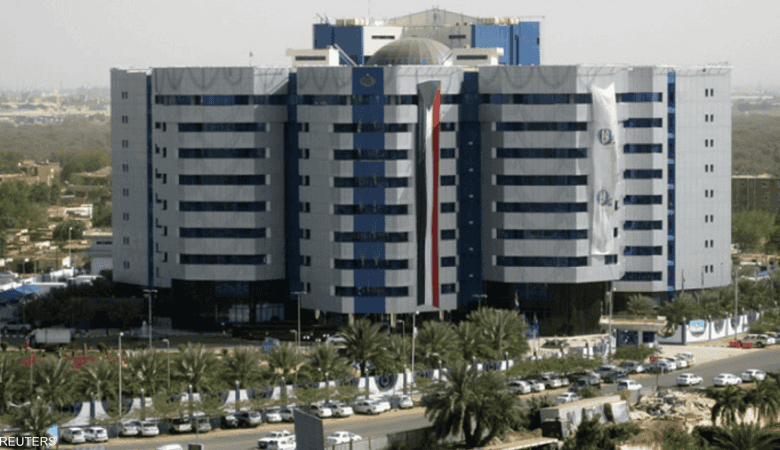Economic
Central Bank Reveals Sufficient New Currency Printing

Sudan Events – Rehabe Abdullah
Mohamed Al-Hafiz, the head of the media committee for currency replacement at the Central Bank of Sudan, minimized concerns regarding potential risks faced by the Central Bank of Sudan in the currency replacement process. He explained that some states have completed the replacement, while others have not yet done so.
Al-Hafiz clarified that the publications issued on this matter have made it clear that the currency remains valid for use in areas that have not yet undergone the replacement. He emphasized that currency transactions are not limited to cash; there are other tools that facilitate citizens’ transactions, including electronic banking applications, which are easily accessible to all.
Al-Hafiz acknowledged the increased cost of printing new currency but noted that this challenge has been overcome by printing sufficient quantities to meet the public’s needs for withdrawals. He urged citizens to use electronic banking applications for their financial transactions due to their ease, speed, and convenience, and to reduce the use of cash when possible.
Regarding complaints about a shortage of new currency following deposits and the imposition of lower withdrawal limits, Al-Hafiz mentioned that the global trend has shifted towards electronic payments, with a significant reduction in the use of paper money. He reiterated that one of the main goals of the currency replacement is to change individuals’ behavior by encouraging the use of alternative payment methods rather than carrying cash. He assured that the issue was not about the availability of printed currency but about the method of payment. He emphasized that bank transfers are unlimited, meaning citizens can visit the bank to transfer any amount to anyone, whether within the same bank or different banks, instead of withdrawing and carrying cash to deliver to others. This process, he said, eliminates any associated risks entirely.
He added that transfers through banking applications allow for transfers of up to 15 million Sudanese pounds between clients of the same bank. Transfers between different banks via apps are currently capped at 1 million pounds.
Al-Hafiz summarized the objectives of the currency replacement process as combating stolen and counterfeit money, neutralizing their impact on increasing cash liquidity, and preventing them from being reintegrated into the economy. He mentioned that the banking sector in Sudan had experienced exceptional events in recent times that affected its stability, including widespread theft and looting of the Central Bank’s headquarters, branches, printing presses, and several other institutions, which led to an increase in liquidity in the economy and a deterioration in the exchange rate. He also noted a significant leakage of raw currency paper and currency at various production stages, resulting in the widespread circulation of counterfeit and substandard currency.
Al-Hafiz considered all these circumstances as direct challenges to the integrity and value of the currency, making the decision to replace the currency essential to mitigate these events. He added that the decision is part of a comprehensive plan to address the negative effects of the war and protect the national economy from its repercussions.
He further explained that one of the main reasons for replacing the currency is to maintain the general price level (inflation rate) and preserve the value of the national currency against foreign currencies (exchange rate) by withdrawing excess cash liquidity and neutralizing the effects of counterfeit and substandard currency. This is being achieved through the issuance of new banknotes with high-security specifications.
Al-Hafiz emphasized that another goal of the currency replacement is to promote digital transformation by encouraging the use of electronic payment methods and reducing reliance on cash transactions. He highlighted the numerous advantages of electronic payment systems, including their ease, high security, and contribution to financial inclusion, enabling individuals to access financial services regardless of their geographical location. Electronic payments are easy, secure, and efficient, providing protection for individuals and their assets, in addition to offering comfort, security, and speed.
Al-Hafiz confirmed that they have successfully overcome the challenges encountered during the currency replacement process by implementing well-structured plans. He noted that this process differs from previous ones, as it involves broad participation from all state agencies due to the exceptional circumstances surrounding it. A high-level committee was formed, chaired by the member of the Sovereign Council and Assistant Commander-in-Chief, Major General Engineer Ibrahim Jaber, with the membership of several relevant bodies, including the Governor of the Central Bank of Sudan. Another federal committee was formed, chaired by the Minister of Finance, including a group of ministers, the governor of the Darfur region, and the heads of several governmental units. Additionally, a central federal chamber was formed, involving representatives from various security and judicial authorities. The Central Bank, as the responsible body by law, has also formed several committees, including an operations and monitoring room, a media campaign committee, and specialized technical committees. State-level committees have also been established, headed by the state governor and the head of the branch of the Central Bank in the respective state, with membership from various relevant bodies.



